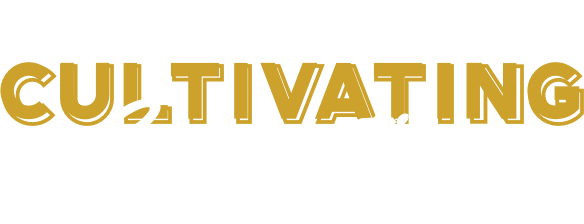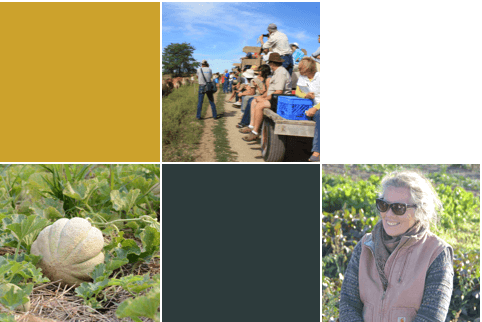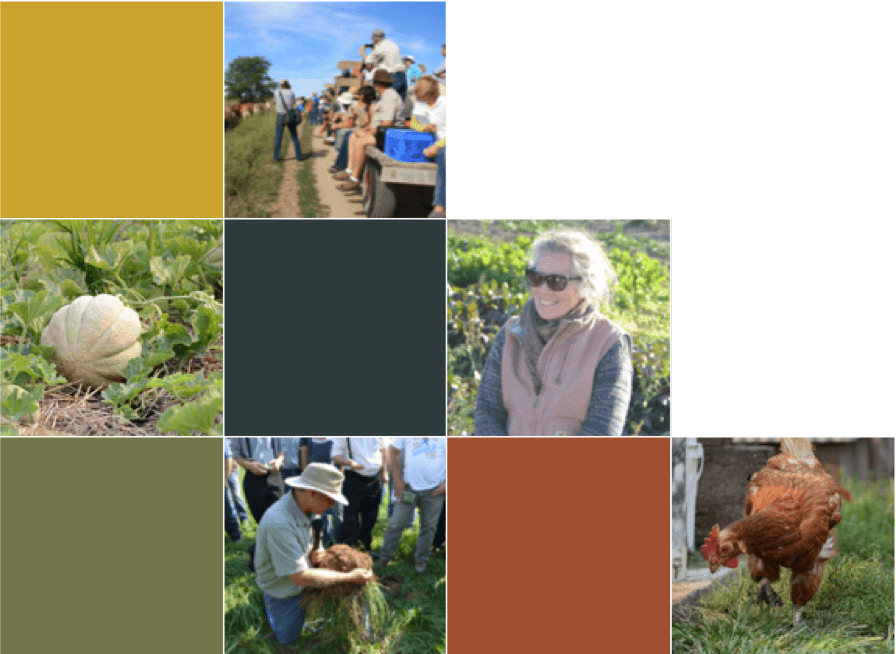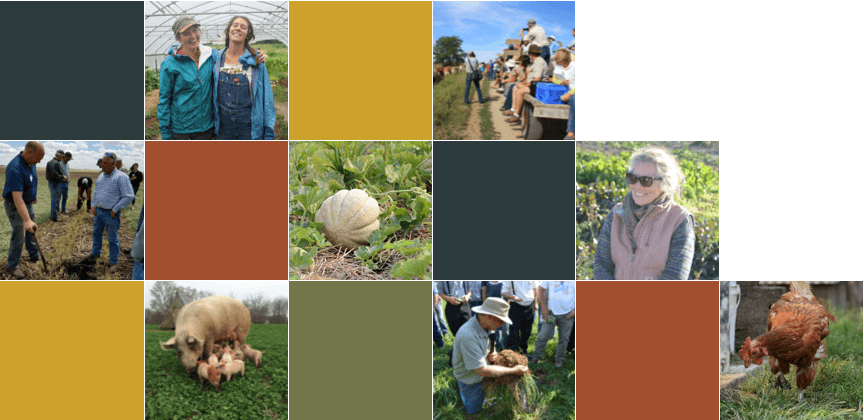Beginning Farmer Sessions
Starting out in farming? You are not alone! Practical Farmers of Iowa want to lend a hand by offering a variety of beginning farmer opportunities at our annual conference.
At Practical Farmers of Iowa, we grow more than crops – we grow people. Our members have indicated their top priority is getting beginning farmers on the land so Iowa family farms will continue generation after generation, providing healthful food, profits to families, healthy ecosystems and vibrant communities. More than 1,500 beginning farmers are in our network, and 75 percent are currently farming. Our beginners tell us they need to network with others like them to get help writing a business plan and gain access to capital and land. Our conference features many sessions catered to beginning farmers including topics like choosing a legal structure, marketing, enterprise budgets for vegetables, managing seasonal employees and more. Check out the descriptions for all of our beginning farmers sessions and see who’s speaking below!
The Beginnings of a Farm Transition
Paul Bickford, John and Halee Wepking
When Paul Bickford decided it was time to slow down and retire, he knew he wanted to find someone to continue his farming operation. After placing a Craigslist ad, he was connected to John and Halee Wepking. Together, they have started the process of transitioning the farm. They will share the steps they took at the beginning of this process to start what they hope will be a successful transition.
Building a Meat Cooperative From the Ground up
Grass Roots Farmers’ Cooperative supports pasture-based livestock farms committed to regenerative farming practices. The co-op connects member farms with markets and provides support with animal purchasing, processing, aggregation, distribution and marketing. Hear Cody explain his journey in building this cooperative; he’ll discuss business structure, banding together to produce volume and hiring professionals to add value to the business.
Business and Balance at Miss Effie’s Flowers and Garden Stuff
Over the last 16 years, Cathy has built a country oasis for her U-pick flower customers while also finding time to manage the farm store (mostly stocked with her own homemade goods and crafts) and host on-farm classes. During this session, Cathy will share her experiences, both successes and challenges, and provide guidance for those interested in running multiple on-farm enterprises.
Choosing Your Farm’s Legal Structure
Choosing a legal structure for your business is a task that can feel overwhelming to a small farm or value-added business enterprise. Explore the different options to determine which structure might best fit your farming goals.
Conduct and Neighborliness in Markets and Product Innovation
Jill Beebout, Jan Libbey, Rebecca Graff and Tom Ruggieri
In an increasingly congested and connected local foods market, where is the line between smart business and stealing business? How do we build allies instead of competition across the street at farmers markets? Join farmers Jan Libbey, Jill Beebout, Tom Ruggieri and Rebecca Graff as they discuss successes and challenges in living these questions, and how both beginning and experienced farmers can approach these questions for their own businesses.
Economics of Organic Dairying
Torray and Erin Wilson, Dr. Larry Tranel
Join dairy specialist Dr. Larry Tranel and farmers Torray and Erin Wilson in a discussion of how to remain profitable with current markets. Larry will speak on the process of how to do (and how not to do) your farm financial analysis. We’ll take a look at what is needed to do a financial analysis, benchmarks and efficiencies necessary to stay profitable. The Wilsons will share financial records and economics behind grass-based organic dairying.
Enterprise Budgets for Vegetable Production
After starting, transplanting, watering, weeding, harvesting, washing, packing and working five hours at the farmers market, you’ve sold some tomatoes for $3 per pound. Did you make any money? Emily and Scott have both done extensive enterprise budgets for the crops on their farms. In this session, they’ll share their enterprise budgets and the processes they used – in the field and on the computer – to find their bottom lines (and improve them!).
Managing Seasonal Employees on a Vegetable Farm
Operating a vegetable farm often takes more labor than the farmer can provide. Seasonal employees can help solve this labor shortage – but they also add cost and complexity to the operation. Efficiently managing employees requires organization, time, development of farm systems and excellent communication and people skills. Laura will share how she and her husband manage Loon Organics’ seasonal workers and handful of work-share volunteers. They will also give tips on hiring, interviewing and employee retention.
Organic Equipment and Weed Control for Beginners
When moving from conventional to organic row crops, you must have an effective weed management plan. You should consider historical pest problems, soil management, crop rotation, machinery, markets, weather, and time and labor. Eric and Scott will share how they have adjusted weed control strategies based on weed pressure, and share the practices that have worked for them.
Packhouse Design and Use
In the past year, Juniper Hill Farms has expanded from its original 10-by-10-foot CoolBot room and 12-by-4-foot wash room – perfect for a smaller farm – to a much needed 4,000-square-foot packhouse in what used to be a hay and equipment storage barn. The new packhouse features walk-in cold storage and freezers, wash lines and single-phase-to-three-phase inverters (all the good stuff!). Scott will discuss the design and function of both systems during this session.
Profitable Meat Marketing: Part I
Strategic and specific marketing efforts can help you take full advantage of the market for local meat. In this workshop you will learn how to build sales projections based on the farm’s income goals and market research, select a target market and develop a simple marketing plan to make your job easier.
Profitable Meat Marketing: Part II
You are selling meat, but are you making money? Learn about the Cornell Meat Price & Yield Calculator. The calculator uses your farm’s data to develop pricing for meat sold by the carcass or by the cut. It accounts for production, processing and marketing costs; lets you build in a profit; then lets you adjust the price of each cut until you reach your goal. We will learn the logic behind price-setting and see a demo of the pricing tool.
Using Finances to Make Farming Decisions
Now that you have collected all your receipts and tracked your income, what do you do with your records? In this workshop, Laura will help you understand how to use your financial statements to make sound business decisions. You’ll find that using these records will aid you in deciding what you want to grow and sell the next year, what parts of your business to expand or scale back on, which farm investments to prioritize and if you are running an overall efficient operation.
Vegetable Seed-Saving as a Business Enterprise
Beth and Nathan’s seed-saving passion led them through Seed Savers Exchange, Sativa Biodynamic Seed (Switzerland), Bingenheim Biodynamic Seed (Germany) and Turtle Tree Biodynamic Seed – which they founded in New York state. During this session, they will discuss what plant-family characteristics should be considered; why population size and isolation are necessary to maintain true-to-type open-pollinated varieties; and how seed-growing can complement CSA, market or processing enterprises.
Wool: Production, Shearing, Processing and Marketing
Regina Frahm, Emily Chamelin-Hickman
Wool production can be a profitable enterprise with certain niche markets. In this session, Regina will share herd management techniques and her knowledge of wool processing at mills throughout the Midwest. Emily will teach us how to prepare sheep for shearing, and we’ll explore viable market options for wool products.
Questions?
Contact Maggie at (515) 232-5661, or maggie@practicalfarmers.org.





